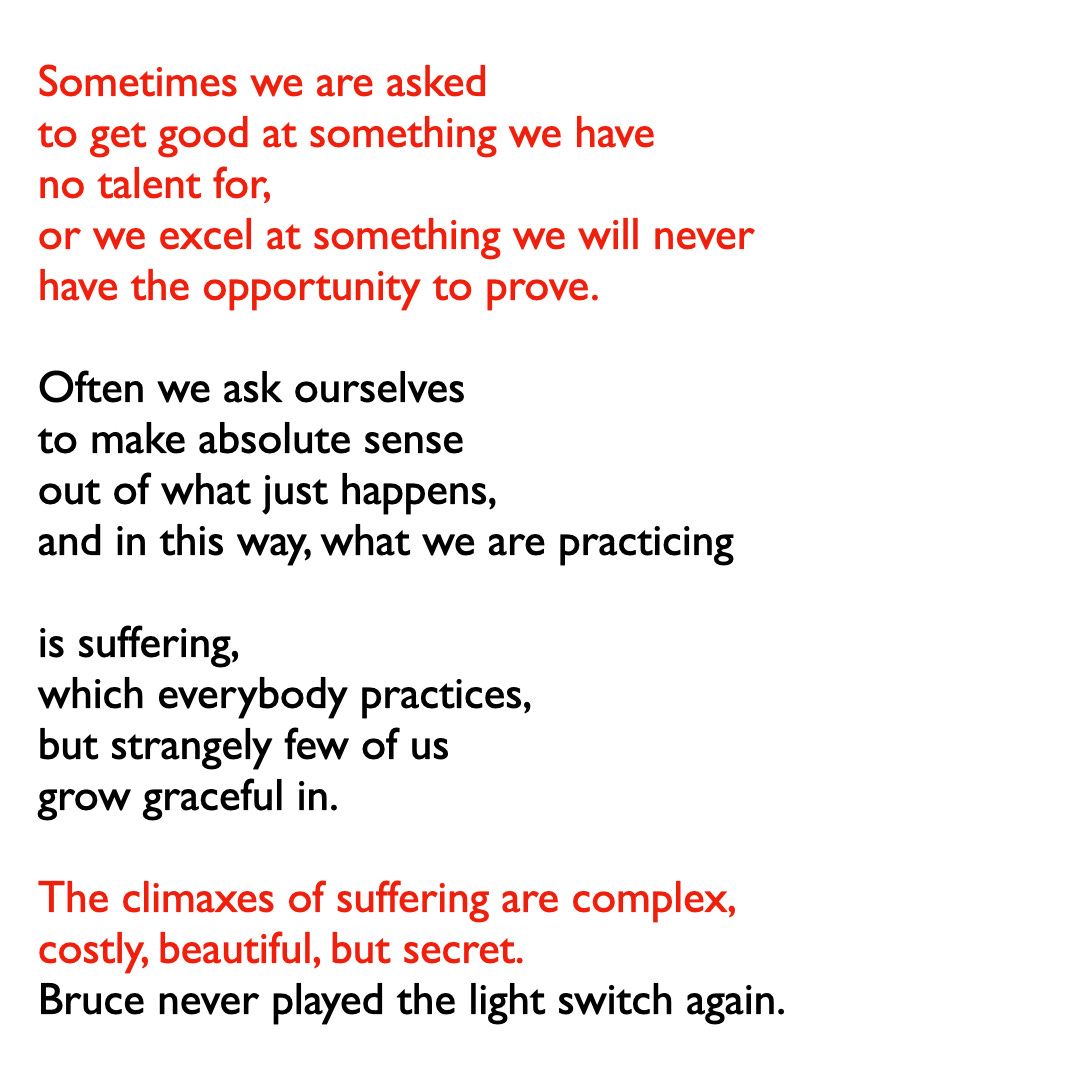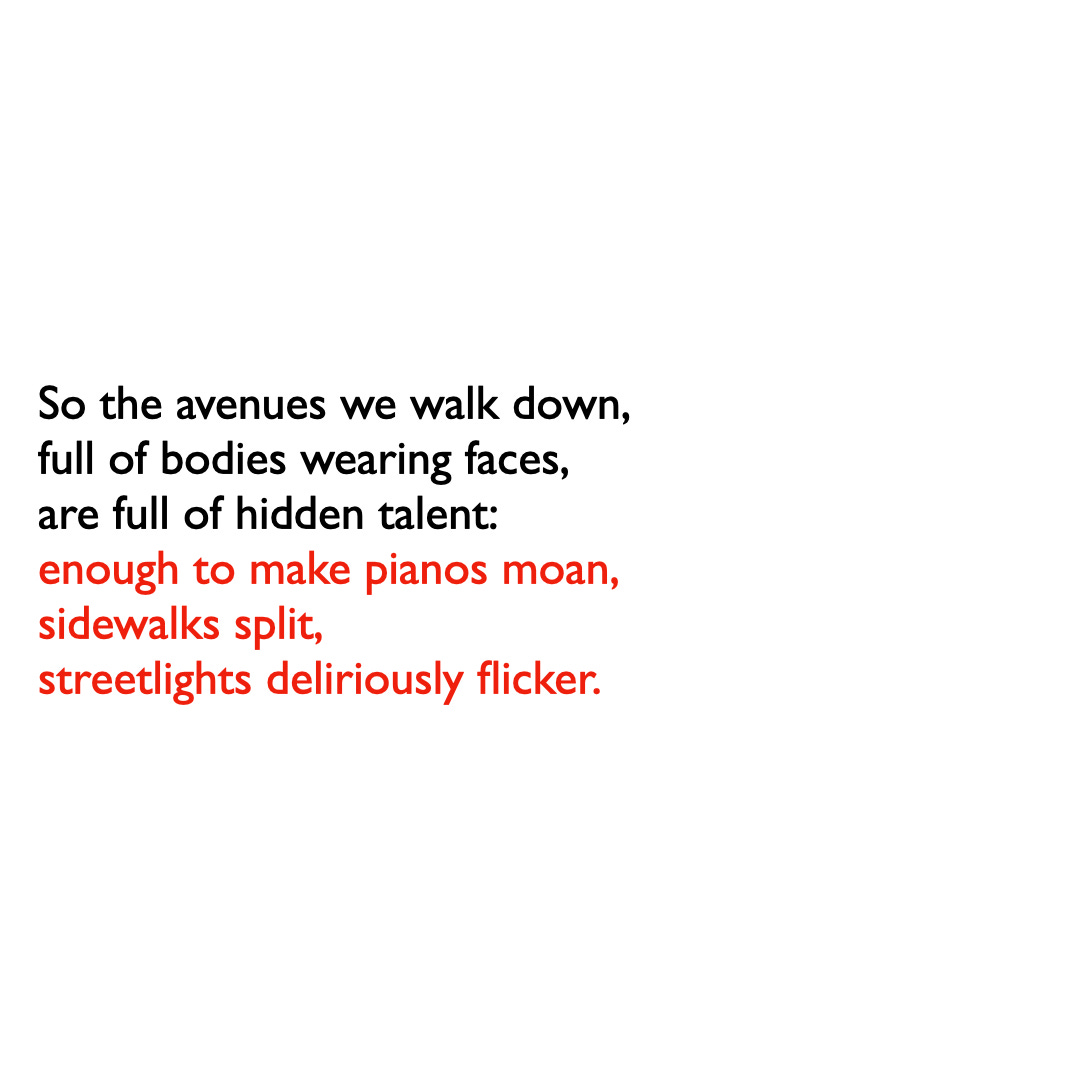It’s easy to please artists. You have to choose your complements carefully, a rhetorical question, with just a hint of discernment, the carefully chosen detail, placed deftly between an air of curious wonder and innocent mystery. Kya nazakat se aapne dhaivat maari… (dhaivat is a note, the sycophant is saying ‘with what delicacy you curled that note’). You have to trail off into the horizon somewhere, that is important, with a look of studied sexiness. The interest of the musician is piqued now, a siren is going crazy in their heads ululating “She Noticed!”.
It’s that simple really. “That metaphor after the fourth line, how you changed tone, so suddenly my gosh, that word - ‘apocalyptic’ - how ordinary you made it sound! Did it really happen that way?” Ah! that last question really nailed it. As poets, one of the things we ask of our poems, is integrity. This is not a compromise. We bet our lives on it. When somebody marvels about that, we have already stopped listening, and are beaming inside (some poets like to do the stern, academic, unruffled exterior, the ‘wink’ equivalent of salt-and-pepper hair) because not only did they notice, it made them feel. This is poetry honeymoon, union has been achieved.
It takes even less for me, on some days- coiled in some dark corner of self-doubt, the occasional stroke is enough to turn my spine into an antenna, and I slur into happiness to have at least one soul who feels like I had felt when I wrote what I wrote, without us having to talk about it. I’ve heard my poet friends tell me, even the senior ones, the ones who have the aukad to have their latest books as whatsapp statuses, I’ve heard them tell me how it never goes away; those eternal questions about whether we’re good enough, whether we’ll ever be good enough, whether it even matters, whether we’ll make it, whether we are right or true or meaningful or (worst of all) useful in any way. Even after the most coveted accolade, we shrink before the next jump. It is not nervousness, really, or anxiety. It’s simply showing up, again, and again and again. Really showing up.
You could show up and not really be there, but then that’s not showing up. You could show up, and nobody’s watching. Most of the time nobody’s watching, and that’s great isn’t it, because then they can’t see your flaws. I think about this sometimes, about the poems that no one’s read, the art works that broke before they could sail into an endless sea of eyes somewhere, the unfinished projects lying forlon in an artist’s workshop, the poems that were magic but for some reason the poet didn’t think so. Dead artists are more interesting, the legacy of the more famous ones continue to make news for years. Artists are always good archivists, it’s only the truly enlightened ones who don’t really care about a work after it’s finished, after it’s been published and is someone else’s now. The real gems didn’t even want to publish - they were wary of contracts and such, or they’d burn all their work in some moment of change of faith. a different god, so different dakshina.
I want to make an anthology one day, of the rejected poems - not by journals or editors - but those poems that have been disdained by a muse, or a jealous colleague, but mostly by the poet themselves. poems banished into oblivion for no failing of their own. poems that open a window into a world turned inside out, forgotten insights, those moments in films after the cut. (Also we are terrible judges of our own work - this is proved by the fact that the pictures we choose to share on social media of our faces, are often the worst - by public consensus. This is why we outsource vanity).
There are anthologies like this of course - ‘uncollected poems’, and these are the interesting ones, I’ve found.
I know an artist who consistently creates masterpieces, and after he’s finished, during his breaks, he plays around with the material (the words or sound or colours - imagine what you will) almost inattentively and leaves whatever he’s created, on the wayside. carelessly. Every time, I go and pick it up. Every time it is better than the ‘masterpiece’ he has decided to exhibit.
Often we ask ourselves
to make absolute sense
out of what just happens,
and in this way, what we are practicingis suffering,
which everybody practices,
but strangely few of us
grow graceful in.
Tony Hoagland asks the most penetrating questions after setting up the most absurdly humorous situations. Here he is, talking about uncertainty, ‘self-improvement’, validation, self-doubt, and talent, in a poem that starts with some advice about cunnilingus.
Throw some money if you want re, just like that. I’ll have some kaapi.
(Matlab, if you can’t, that’s also fine, obviously. This is a free newsletter)
Note: Those, not in India, who’d like to support the work I do at Poetly, do write to me - poetly@pm.me. (Paypal has left the building)
Thanks for reading Poetly! Do subscribe if you are not reading this in your inbox. Cheers!






